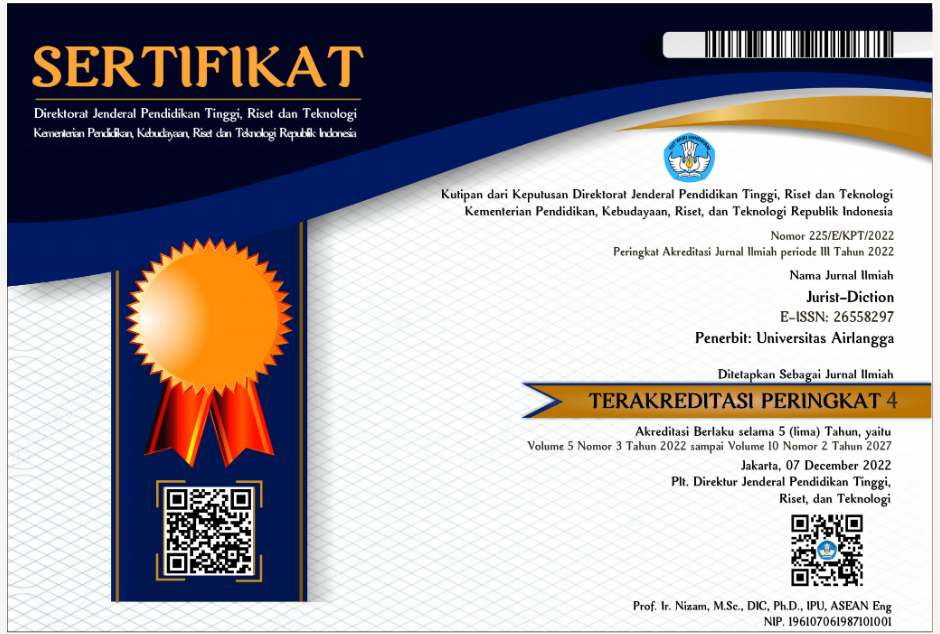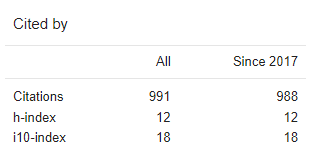Legal Protection of Well-Known Marks Against Passing Off: A Comparative Perspective
Passing off of well-known marks remains a persistent form of trademark infringement in many jurisdictions, including Indonesia and Singapore. This paper undertakes a comparative analysis of the two countries’ trademark regimes, intending to assess and improve Indonesia’s legal protection of well-known marks. The study employs normative legal research combined with comparative qualitative analysis of statutory provisions and judicial practice. The findings reveal that Singapore’s Trade Marks Act provides more comprehensive protection, with a detailed substantive framework addressing passing off, effective sanctions, and a legal culture that promotes compliance. By contrast, Indonesia’s legal framework is less developed, relying on limited statutory guidance and weaker enforcement. This disparity underscores the need for reform in Indonesia to ensure more effective protection of well-known marks. The paper concludes that Indonesia should adopt clearer substantive provisions and foster stronger compliance mechanisms to enhance legal certainty.
Books
Bambang Sunggono, Metodologi Penelitian Hukum, (PT Raja Grafindo 2003)
Kurnia, Titon Slamat, Perlindungan Hukum Terhadap Merek Terkenal di Indonesia Pasca Perjanjian TRIPs, (PT Alumni, 2011)
Lindsey,Tim, Hak Kekayaan Intelektual, (Alumni 2011).
Muhaimin, Metode Penelitian Hukum, (Mataram University Press 2020)
Nurachmad, Much, Segala Tentang HAKI Indonesia, (Buku Biru 2012)
Riswandi, Budi Agus, M Syamsudin, HKI dan Budaya Hukum (PT Rajagrafindo Persada 2004)
Saidin, OK, Aspek Hukum Hak Kekayaan Intelektual (Intellectual Property Rights), (PT Rajagrafindo Persada 2019)
Journals
Debora, et.all, ‘Ketentuan Hukum Merek Wellknown Mark Dalam Pemberlian Melalui Online’ (2022) Pkm : Pengabdian Kepada Masyarakat Vol 03 No 01 42-50
Haryono, ‘Analisis Perlindungan Merek Terkenal (Studi Putusan Pengadilan)’, (2020) FPIPSKR Universitas PGRI Semarang, 87-93
Hasibuan, Khadijah, et.all, Perlindungan Hukum Merek Terkenal Terhadap Perbuatan Pemboncengan Reputasi (Studi PutusanNo.18PK/Pdt.Sus-HKI/2021)’, (2022) Locus Journal of Academic Literature Review. Vol.1 Issue 6 333-340 https://doi.org/10.56128/ljoalr.v1i6.84
Hermanto, Wong Michelle, ‘Perlindungan Merek Terkenal Terhadap Tindakan Passing Off dan Dilution dalam Hukum Merek Indonesia (Suatu Tinjauan Komparatif)’, (2017) Universitas Katolik Soegijapranata Repository, Semarang,
Khotimah, Vika H, Rani Apriani, ‘Faktot-Faktor Penyebab Terjadinya Pelanggaran Hak Merek Berupa Pemboncengan Reputasi (Passing Off) Merek Terkenal Ditinjau dari Undang-Undang Nomor 20 Tahun 2016 tentang Merek dan Indikasi Geografis’ (2022) Jurnal ilmiah Wahana Pendidikan, Vol. 8 No. 20.
Lambasa, Priskila, ‘Tinjauan Yuridis Putusan Sengketa Merek Terkenal Terhadap Barang Tidak Sejenis Menurut Pasal 6 Ayat (2) Undang-Undang Nomor 15 Tahun 2001 Tentang Merek (studi putusan Mahkamah Agung Nomor 29 PK /Pdt.Sus-HKI/2016)’ Skripsi, Universitas Brawijaya , 2017.
Lutfil Ansori, “Reformasi Penegakan Hukum Perspektif Progresif” (2017) Jurnal Yuridis, Vol. 4 No. 2,
Patricia, Laurence, Wilma Silalahi, ‘Perlindungan Hukum Merek Terkenal Terhadap Tindakan Pemboncengan Reputasi di Indonesia: Studi Yuridis’ (2024) Ranah Research: Journal of Multidisciplinary Research and Development, Vol 7 No. 1, 105-110 https://doi.org/10.38035/rrj.v7i1
Rafianti, Laina, Muhammad Amirulloh, ‘Pelindungan Merek Terkenal di Indonesia Berdasarkan Ketentuan Hukum Internasional Dibandingkan dengan Mark Dilution Revision Act of 2006 Amerika Serikat’ (2015) Pustaka Unpad, 1-16.
Rheza Firmansyah dan Andi Budiansyah, ‘Peran dan Tantangan Organisasi Berbasis Kekayaan Intelektual di Kawasan ASEAN’ (2019) Jurnal Kajian Lemhannas RI Edisi 38 Juni 2019.
Regulations
Law Number 20 of 2016 concerning Marks and Geographical Indications, (Indonesian State Gazette Year 2016 Number 252, Additional of Indonesian State Gazette Number 5953).
Kementrian Hukum dan HAM, Permenkumham Number 67 of 2016 concerning Trademarks Registration.
Singapura, Singapore Trade Marks Act 1998 (2020 Revided Edition) / Republic Act Number 8293.
Website
Property Rights Alliance, International Property Right Index 2024, <https://internationalpropertyrightsindex.org/country/singapore> Accessed 1 November 2024.
Tan Tee Jim SC dan Ng-Loy Wee Loon. (2005) Intellectual Property Law, Accessed 7 November 2024.
World Trade Organization, “Overview: the TRIPS Agreement”, <https://www.wto.org/english/tratop_e/trips_e/intel2_e.htmTripsAgreement> Accessed 23 November 2024.
Copyright (c) 2025 Dinda Aprilia Batubara, OK. Saidin, Edy Ikhsan

This work is licensed under a Creative Commons Attribution 4.0 International License.
Jurist-Diction (P-ISSN 2721-8392, E-ISSN 2655-8297), published by Universitas Airlangga, is licensed under the Creative Commons Attribution 4.0 International License (CC BY 4.0).
This license permits users to:
- Share – copy and redistribute the material in any medium or format;
- Adapt – remix, transform, and build upon the material for any purpose, including commercial use.
These freedoms are granted under the following conditions:
Attribution – You must provide appropriate credit, include a link to the license, and indicate if any changes were made. This may be done in any reasonable manner, but not in a way that suggests the licensor endorses you or your use.
No additional restrictions – You may not apply legal terms or technological measures that restrict others from exercising the rights granted under the license.
Note: As of Volume 5, No. 1 (2022), Jurist-Diction has adopted the Creative Commons Attribution 4.0 International License (CC BY 4.0), replacing its previous license (CC BY-NC-SA).


















